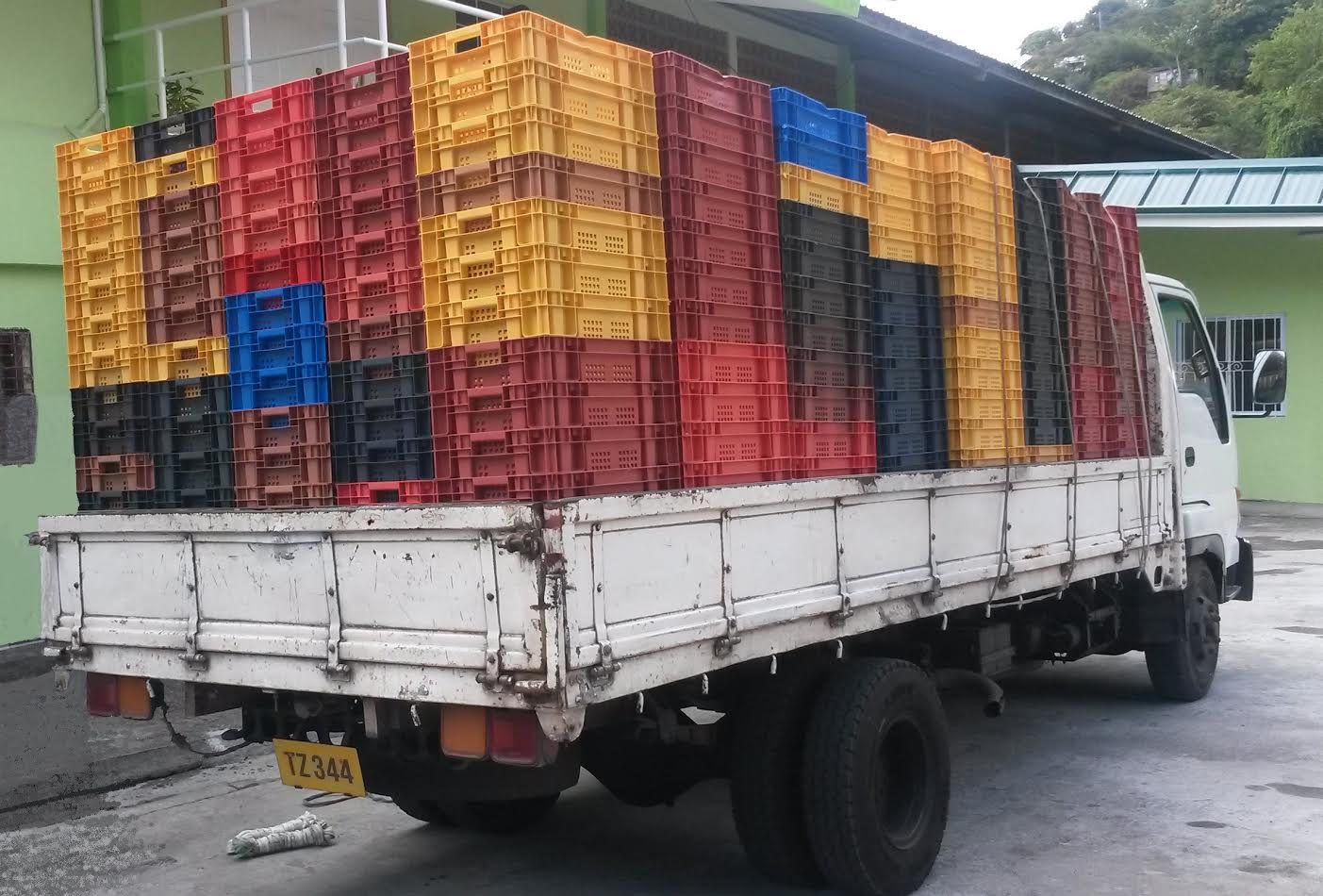Benefit distribution is part of the actions carried out by the Agriculture Policy Programme (APP)implemented by IICA, CARICOM and CARDI.

Grenada, March 9, 2017 (IICA). A total of 850 packaging crates were distributed to 30 small farmers and farmers’ organisations in Grenada to assist them with the marketing of their produce.
This was of great benefit to the farmers, as they can be used to transport produce from the field to their pack sheds and from their pack sheds to the market. The farmers can also use them to display their produce in the market, thus enhancing the presentation of their produce to the shoppers.
The crates were manufactured from high density polyethylene (HDPE) which is strong and provides protection against degradation by sunlight. They are nestable and stackable, confirm to the ASTM 4577 standard and come in a range of colours such as red, blue, green, black and yellow.
The advantage of using the crates instead of the corrugated boxes being used by farmers is that they are easier to clean, can be reused many times, are easy to store and, when stacked correctly, prevent the produce from becoming squashed. Their inherent qualities of being weather resistant and impermeable to water make them quite suitable for use on farms in both the dry and rainy seasons of the year.
This initiative is part of the actions executed under the 10th EDF Agriculture Policy Programme (APP), implemented by the Inter-American Institute for Cooperation on Agriculture (IICA) together with the Caribbean Community (CARICOM) and the Caribbean Agricultural Research and Development Institute (CARDI).
The objective of the APP was to contribute to enhancing the capabilities of the agriculture sector in eradicating poverty. Its ultimate aim was to ensure that small producers are more effectively integrated into national, regional and international markets.
The APP was implemented in the 15 CARIFORUM countries simultaneously. Farmers in Grenada were beneficiaries of the three components of this Programme: regional policy and strategy; innovation, research and development; and enterprise development and marketing. It is under the third component that the plastic packaging crates were made available to the root crop farmers in Grenada.
For more information, contact:
Derek Charles, national specialist at the IICA Delegation in Grenada











